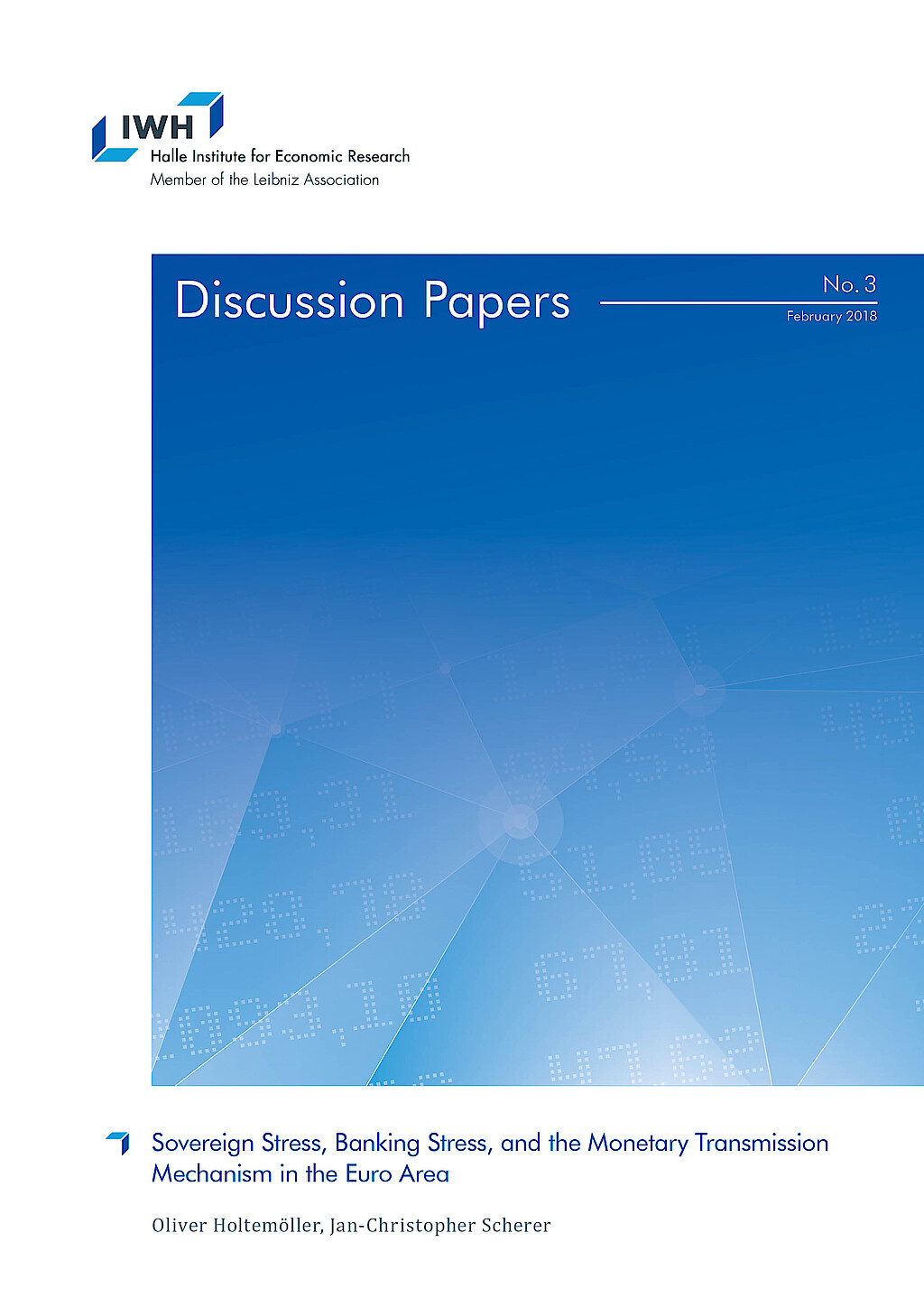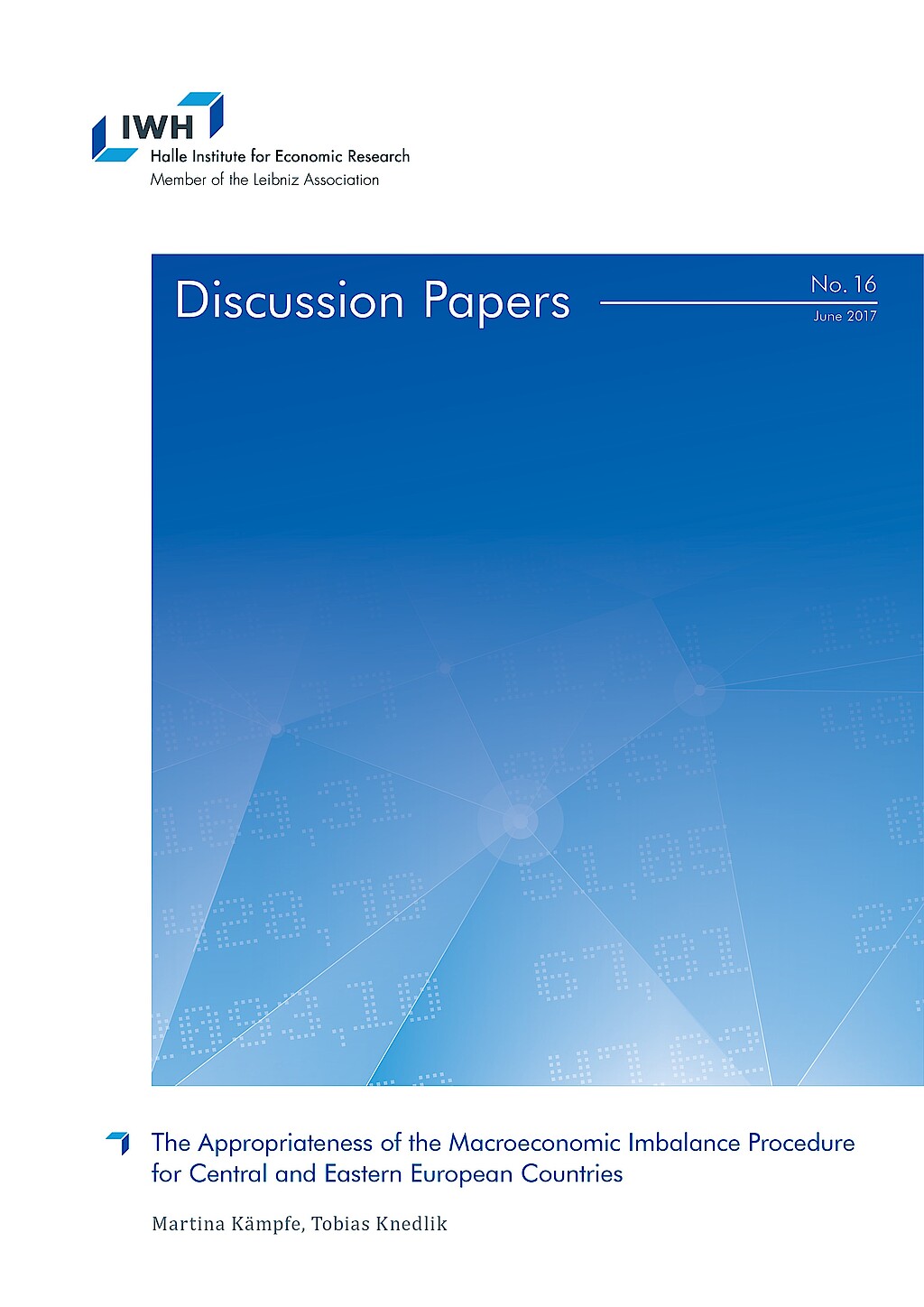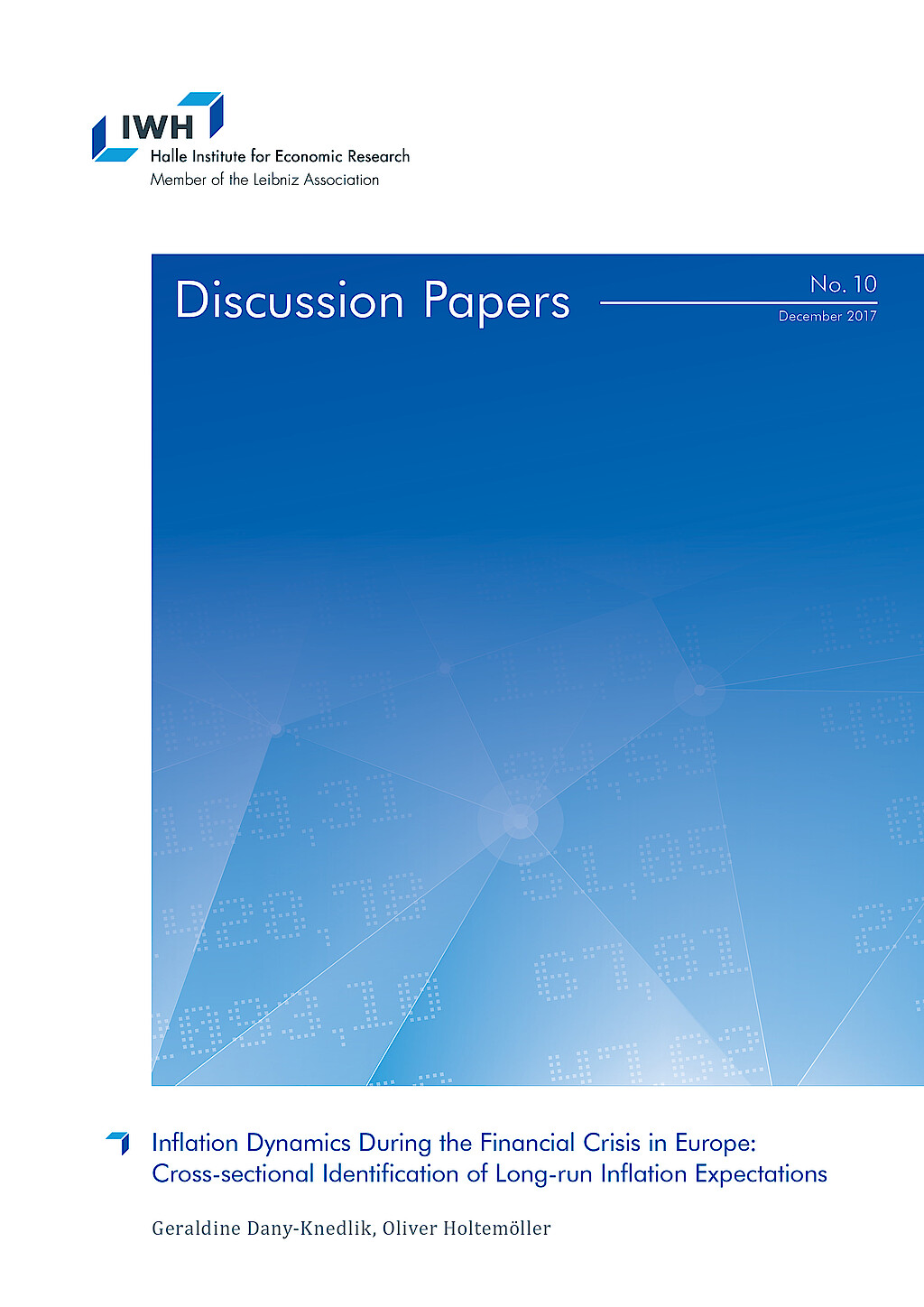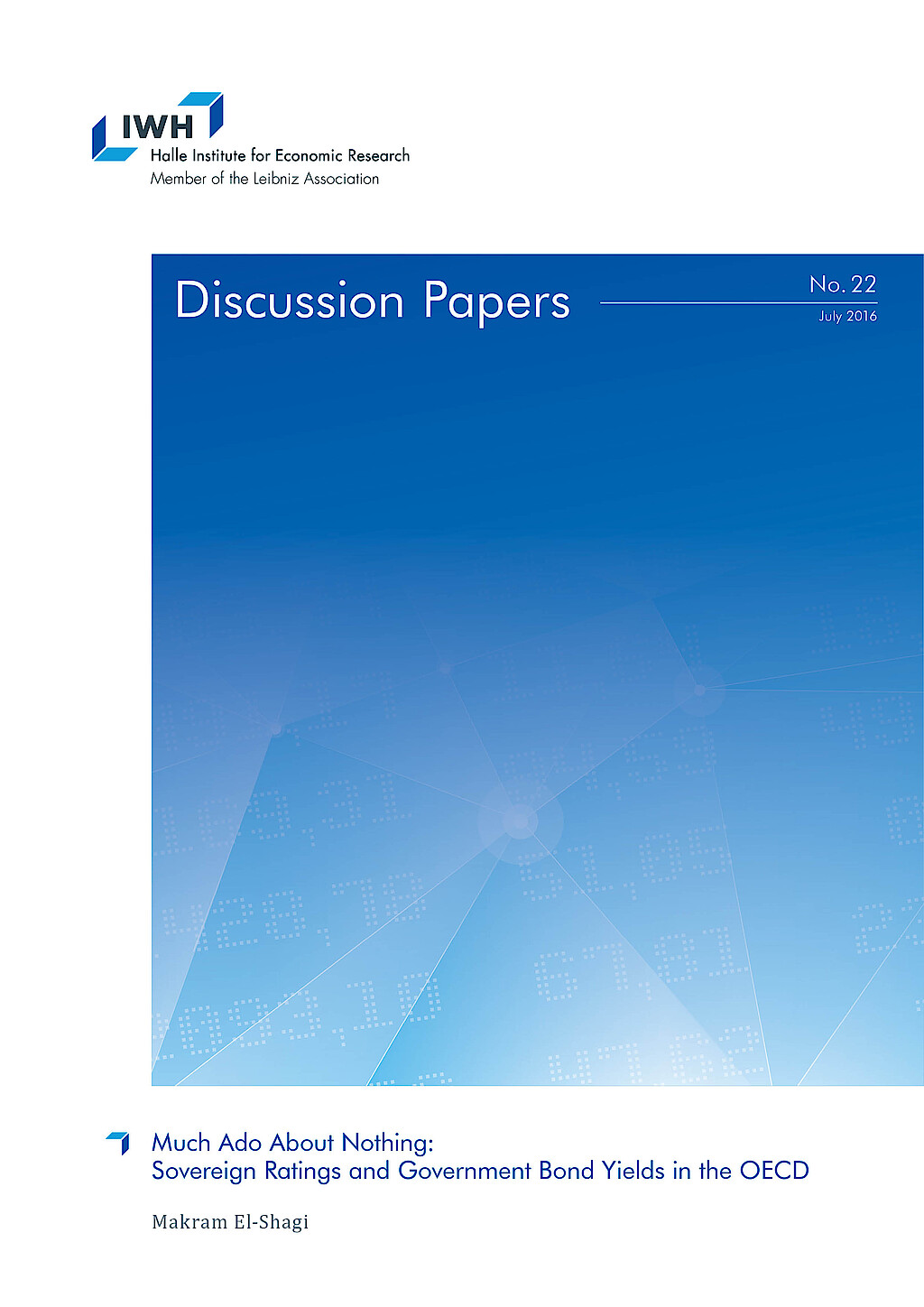
Sovereign Stress, Banking Stress, and the Monetary Transmission Mechanism in the Euro Area
in: IWH Discussion Papers, No. 3, 2018
Abstract
In this paper, we investigate to what extent sovereign stress and banking stress have contributed to the increase in the level and in the heterogeneity of nonfinancial firms’ refinancing costs in the Euro area during the European debt crisis and how they did affect the monetary transmission mechanism. We identify the increasing effect of government bond yield spreads (sovereign stress) and the share of non-performing loans (banking stress) on firms’ financing costs using an instrumental-variable approach. Moreover, we estimate both sources of stress to have significantly impaired the monetary transmission mechanism during the European debt crisis.

The Appropriateness of the Macroeconomic Imbalance Procedure for Central and Eastern European Countries
in: IWH Discussion Papers, No. 16, 2017
Abstract
The experience of Central and Eastern European countries (CEEC) during the global financial crisis and in the resulting European debt crises has been largely different from that of other European countries. This paper looks at the specifics of the CEEC in recent history and focuses in particular on the appropriateness of the Macroeconomic Imbalances Procedure for this group of countries. In doing so, the macroeconomic situation in the CEEC is highlighted and macroeconomic problems faced by these countries are extracted. The findings are compared to the results of the Macroeconomic Imbalances Procedure of the European Commission. It is shown that while the Macroeconomic Imbalances Procedure correctly identifies some of the problems, it understates or overstates other problems. This is due to the specific construction of the broadened surveillance procedure, which largely disregarded the specifics of catching-up economies.

Inflation Dynamics During the Financial Crisis in Europe: Cross-sectional Identification of Long-run Inflation Expectations
in: IWH Discussion Papers, No. 10, 2017
Abstract
We investigate drivers of Euro area inflation dynamics using a panel of regional Phillips curves and identify long-run inflation expectations by exploiting the crosssectional dimension of the data. Our approach simultaneously allows for the inclusion of country-specific inflation and unemployment-gaps, as well as time-varying parameters. Our preferred panel specification outperforms various aggregate, uni- and multivariate unobserved component models in terms of forecast accuracy. We find that declining long-run trend inflation expectations and rising inflation persistence indicate an altered risk of inflation expectations de-anchoring. Lower trend inflation, and persistently negative unemployment-gaps, a slightly increasing Phillips curve slope and the downward pressure of low oil prices mainly explain the low inflation rate during the recent years.

Much Ado About Nothing: Sovereign Ratings and Government Bond Yields in the OECD
in: IWH Discussion Papers, No. 22, 2016
Abstract
In this paper, we propose a new method to assess the impact of sovereign ratings on sovereign bond yields. We estimate the impulse response of the interest rate, following a change in the rating. Since ratings are ordinal and moreover extremely persistent, it proves difficult to estimate those impulse response functions using a VAR modeling ratings, yields and other macroeconomic indicators. However, given the highly stochastic nature of the precise timing of ratings, we can treat most rating adjustments as shocks. We thus no longer rely on a VAR for shock identification, making the estimation of the corresponding IRFs well suited for so called local projections – that is estimating impulse response functions through a series of separate direct forecasts over different horizons. Yet, the rare occurrence of ratings makes impulse response functions estimated through that procedure highly sensitive to individual observations, resulting in implausibly volatile impulse responses. We propose an augmentation to restrict jointly estimated local projections in a way that produces economically plausible impulse response functions.

Exit Expectations and Debt Crises in Currency Unions
in: IWH Discussion Papers, No. 18, 2015
Abstract
Membership in a currency union is not irreversible. Exit expectations may emerge during sovereign debt crises, because exit allows countries to reduce their liabilities through a currency redenomination. As market participants anticipate this possibility, sovereign debt crises intensify. We establish this formally within a small open economy model of changing policy regimes. The model permits explosive dynamics of debt and sovereign yields inside currency unions and allows us to distinguish between exit expectations and those of an outright default. By estimating the model on Greek data, we quantify the contribution of exit expectations to the crisis dynamics during 2009 to 2012.



